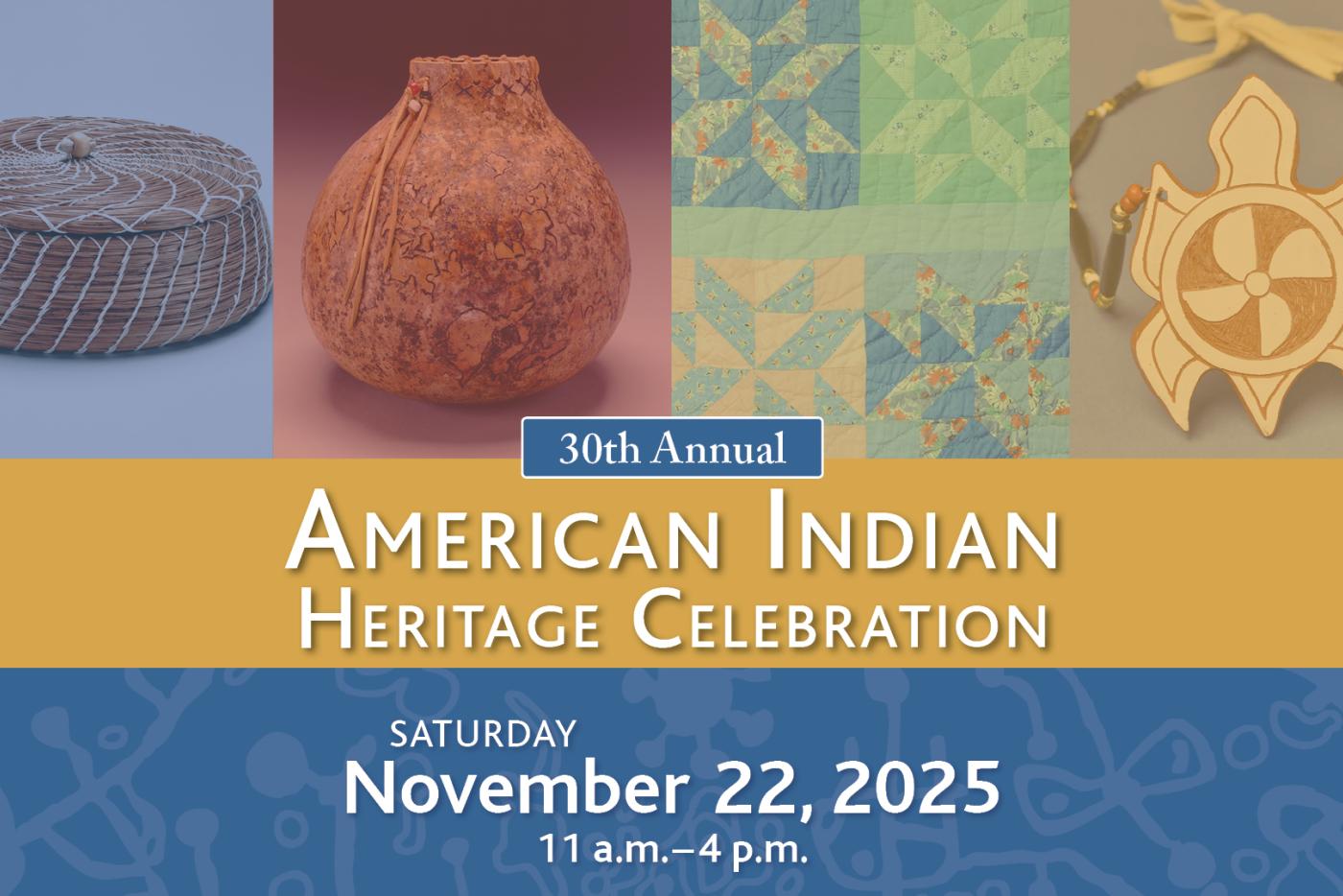The North Carolina Museum of History will host the 30th Annual American Indian Heritage Celebration on Saturday, Nov. 22, 2025, from 11 a.m. to 4 p.m. at the North Carolina Museum of Art.
For three decades, this beloved event has brought together members of all eight state-recognized tribes for a day filled with music, dance, storytelling, art, and educational experiences. Visitors of all ages are invited to explore the enduring heritage and living traditions of North Carolina’s American Indian communities through interactive presentations, craft demonstrations, and cultural discussions.
“For 30 years, the American Indian Heritage Celebration has shared the voices, traditions, and knowledge of our tribal communities with people across the state,” said Kaya Littleturtle, community programs coordinator at the North Carolina Museum of History. “It’s a time to reflect on how far we’ve come and to celebrate that our cultures remain strong, visible, and connected.”
Event Highlights
- Virtual Education Day: Leading up to the celebration, a Virtual Education Day on Friday, Nov. 21, invites students, educators, and lifelong learners to explore North Carolina’s Native cultures through free, online presentations and demonstrations.
- Grand Entry Procession: The celebration kicks off with a ceremonial Grand Entry, where members of the eight state-recognized tribes will process through Gibson Plaza. Dressed in traditional regalia, they will perform dances and songs accompanied by the powerful sound of drums.
- Cultural Booths and Demonstrations: Throughout the museum, visitors can interact with artists, historians, and cultural practitioners. Demonstrations will range from baket weaving and pottery to discussions on the impact of American Indian traditions on North Carolina’s past and present.
- Hands-on Activities for All Ages: Families and children can engage in traditional games like corncob darts or participate in hands-on activities exploring American Indian crafts and customs.
- Native-Owned Food Offerings: Savor the flavors of Indigenous cuisine with a visit to the Native-owned food trucks, serving delicious staples like fry bread and other traditional dishes.
For more information and to view the full schedule of events, visit NC-AIHC.com.
About the North Carolina Museum of History
The North Carolina Museum of History fosters a passion for North Carolina history. This museum collects and preserves artifacts of state history and educates the public on the history of the state and the nation through exhibits and educational programs. Before closing for renovation in late 2024, more than 465,000 people visited the museum annually to see some of the 150,000 artifacts in its collection. Located in the heart of downtown Raleigh, the North Carolina Museum of History serves as the flagship historical institution of the Division of State History Museums. The museum is currently closed for a major renovation and is scheduled to reopen in fall 2028. However, public programs, pop-up events, and exhibitions remain active and its statewide education outreach program—serving nearly 300,000 students and teachers—continues to serve all 100 North Carolina counties. More information is available on the museum’s website, ncmuseumofhistory.org. The Division, part of the N.C. Department of Natural and Cultural Resources, includes seven regional history museums dedicated to preserving and interpreting the stories of North Carolina’s past.
About the North Carolina Department of Natural and Cultural Resources
The N.C. Department of Natural and Cultural Resources (DNCR) manages, promotes, and enhances the things that people love about North Carolina – its diverse arts and culture, rich history, and spectacular natural areas. Through its programs, the department enhances education, stimulates economic development, improves public health, expands accessibility, and strengthens community resiliency.
The department manages over 100 locations across the state, including 27 historic sites, seven history museums, two art museums, five science museums, four aquariums, 35 state parks, four recreation areas, dozens of state trails and natural areas, the N.C. Zoo, the State Library, the State Archives, the N.C. Arts Council, the African American Heritage Commission, the American Indian Heritage Commission, the State Historic Preservation Office, the Office of State Archaeology, the Highway Historical Markers program, the N.C. Land and Water Fund, and the Natural Heritage Program. For more information, please visit www.dncr.nc.gov.
###

